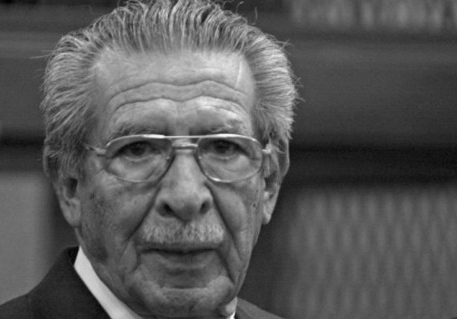
May 16, 2013 | News
La CIJ hoy expresó su preocupación ante la posibilidad de que la sentencia emitida días atrás por el Juzgado de Mayor Riesgo A en el juicio por Genocidio y Delito contra los Deberes de Humanidad sea anulada.
La CIJ tambien expresó su preocupación que el proceso contra el General Efraín Rios Montt (photo) por Genocidio y Delitos contra los Deberes de Humanidad tenga que repetirse.
La Corte de Constitucionalidad (CC) está examinando recursos legales planteados relacionados a la sentencia de 80 años de cárcel contra el exjefe de Estado.
Durante todo el juicio, los jueces del Tribunal recibieron presiones constantes, no solo de parte de los abogados de la defensa, sino que también de otros grupos externos que promueven más impunidad en este caso, dijó la CIJ.
Además, constantemente los abogados de la defensa presentaron diferentes recursos de amparo y otros recursos legales, con el único fin de obstaculizar el proceso y no permitir que se emitiera sentencia.
Frente a todos estos ataques, los jueces del Tribunal de Mayor Riesgo A demostraron una conducta intachable, apegada a derecho y con una firme determinación de terminar con la impunidad que ha existido alrededor de este caso.
Ramón Cadena, Director de la Oficina de la Comisión Internacional de Juristas para Centro América expresó: “Sería muy negativo para el Estado de Guatemala si se llega a anular la sentencia. La impunidad que ha existido ha hecho mucho daño a la población y a las víctimas quienes habían perdido la fe en la justicia.”
Finalmente, Cadena puntualizó: “Es más valioso que un Estado reconozca mediante una sentencia que se cometieron graves crímenes de guerra, de lesa humanidad y genocidio, a seguir escondiendo su responsabilidad con diferentes mecanismos de impunidad.”

May 13, 2013 | News
On 13 May, the Hong Kong Court of Final Appeal granted W, a transgender woman, the right to marry her male partner. The ICJ, which made submissions in the case, applauds this decision.
W is a resident of Hong Kong who has undergone gender reassignment surgery, paid for by the Hong Kong Government, and who holds a national identity card and passport recording her sex as female.
In 2008 she applied to the Registrar of Marriages seeking confirmation that she could marry her male partner.
The Registrar denied her request on the grounds that “the biological sexual construction of an individual is fixed at birth and cannot be changed.”
Because “only an individual’s sex at birth counts,” the Registrar would not celebrate the marriage.
The trial court and court of appeal upheld the Registrar’s interpretation of the Marriage Ordinance and Matrimonial Causes Ordinance and ruled that it did not conflict with Hong Kong’s Basic Law or its obligations under the International Covenant on Civil and Political Rights.
These courts relied on the 1970 British case of Corbett v. Corbett, which held that sex was fixed immutably at birth.
W won her case at the Court of Final Appeal, which ruled in a 5-4 decision that the Marriage Ordinance and Matrimonial Causes Ordinance ignored the “psychological and social elements of a person’s sexual identity” and thus were inconsistent with the constitutional right to marry.
Furthermore, the ordinances were unconstitutional because they denied W the right to marry at all and thus impaired the very essence of the right.
While the Court granted the parties leave to make further submissions as to the exact nature of the declaratory relief, it held that “a transsexual in W’s situation” should in principle be granted a declaration that she is in law a woman within the meaning of the marriage ordinances and “therefore eligible to marry a man.”
Importantly, the Court also stated: “We would not seek to lay down a rule that only those who have had full gender reassignment surgery involving both excising and reconstructive genital surgery, qualify. We leave open the question whether transsexual persons who have undergone less extensive treatment might also qualify.”
“This is a historic decision,” said Alli Jernow, Senior Legal Advisor at the International Commission of Jurists. “Not only has W won her own case at the Court of Final Appeal, her courage and commitment have changed the lives of transgender people in Hong Kong.”
The parties have an additional 21 days to file written submissions. The Court’s proposed order gives the Hong Kong legislature time to respond but indicates that even in the absence of intervening legislation, the marriage ordinances would be given a remedial interpretation to include W.
Photo by K.Y. Cheng: Michael Vidler, solicitor of the appellant, holds the judgment in his hand outside Court of Final Appeal.
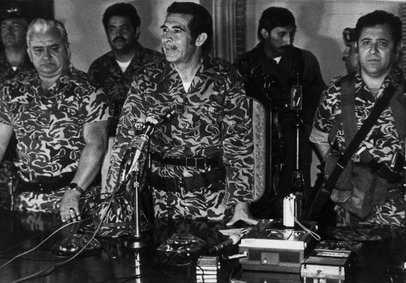
May 10, 2013 | News
La CIJ celebra que el proceso contra el General Efraín Rios Montt (center on the photo) por Genocidio y Delitos contra los Deberes de Humanidad haya concluido el viernes 10 de mayo en la ciudad de Guatemala.
La CIJ observó el debate por medio del abogado Miguel Moerth y apoyó proceso y el debido cumplimiento del Derecho Internacional de los Derechos Humanos y del Derecho Internacional Humanitario por medio del peritaje presentado por el Director de su oficina para Centroamérica.
Dicha oficina se ha mantenido atenta y ha abogado por el derecho de las víctimas a la verdad y la justicia.
Durante el proceso la CIJ llamó la atención sobre el uso abusivo de la figura del amparo, recusaciones, incidentes y otros recursos presentados por la defensa que pretendieron en diferentes momentos anular u obstaculizar el desarrollo del juicio.
La CIJ respalda decididamente al Tribunal de Mayor Riesgo “A” por haber llevado a cabo su difícil tarea, con respeto a las normas del debido proceso y la garantía del derecho de defensa de los acusados y, por haber resistido con las presiones recibidas durante el juicio, que incluyeron amenazas contra integridad personal de miembros del Tribunal.
La CIJ considera que el derecho de las víctimas a un juicio justo e imparcial y a conocer la verdad de los hechos, ha sido respetado con las acciones llevadas a cabo durante el juicio por dicho Tribunal.
Wilder Tayler, Secretario General de la Comisión Internacional de Juristas expresó: “Celebramos este triunfo de la Justicia sobre la Impunidad. Después de 30 años y de tanto esfuerzo, el derecho a la justicia de las víctimas ha sido respetado; la sociedad guatemalteca ha dado un primer y muy importante paso en el camino hacia la reconciliación. Esta sentencia fortalece el Sistema de Justicia en Guatemala y constituye un importante precedente para evitar que crímenes tan graves puedan repetirse. Constituye igualmente un ejemplo para toda la región americana en su combate contra la impunidad”.
Photo: Bettman/Corbias
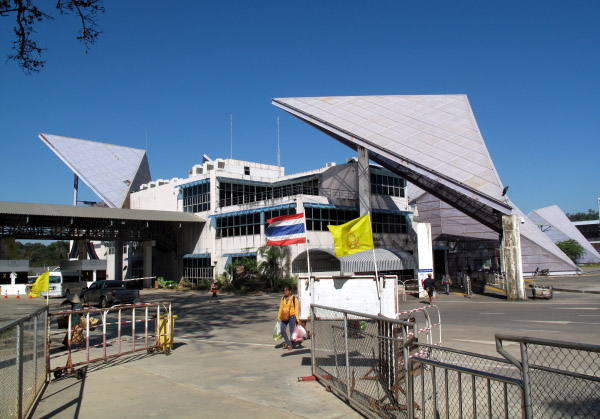
May 5, 2013 | News, Op-eds
An opinion piece by Benjamin Zawacki, Senior Legal Adviser for Southeast Asia at the International Commission of Jurists.
Thailand’s government recently passed up an opportunity for a new approach to the deep South, by declining to replace the Emergency Decree, which violates international standards on human rights, with the somewhat less heavy-handed Internal Security Act (ISA).
Equally concerning is why the government has not looked beyond the South in reconsidering the use of its other extraordinary security legislation: no fewer than 31 of Thailand’s 77 provinces are at least partially under Martial Law.
International law is clear that the extraordinary powers under security laws like the Emergency Decree and Martial Law may only be invoked under a strict set of circumstances, none of which is even arguably applicable in Thailand outside of the southern insurgency (four of the 31 provinces).
Martial Law may be invoked in Thailand “when a situation arises that makes it necessary to maintain law and order and to defend against the danger of attack”, or “when there is an outbreak of war or unrest”. All of Thailand’s provinces that are situated on one of the country’s four international borders are under Martial Law in whole or in part (including the 27 not in the deep South). Among them is Phitsanulok, whose shared border with Laos is roughly only 50km.
This province featured in Thailand’s last war, a three-month affair with Laos that ended in 1988.
Otherwise, Thailand’s border challenges are well-known: trafficking in persons, drugs, and weapons; landmines; refugees and migrants; smuggling of logs, oil, and other contraband; demarcation disputes. While doubtless all of these call for robust law enforcement, only the dispute with Cambodia over the Preah Vihear temple even arguably involves defending against the danger of armed attack.
Several minor but deadly skirmishes with Cambodian forces, as well as considerable mutual saber-rattling, have occurred in several districts of Si Sa Ket province since 2009. It is not credible to claim that Thailand needs to impose Martial Law because of external threats.
A more likely explanation is that Martial Law’s expansive application in Thailand is due to what is common to most security legislation around the region, namely vague language that lends itself to broad interpretation and granting wide powers to the military.
The Martial Law term “law and order”, in addition to more typically applying to civilian law enforcement agencies than to the military, could apply to any situation in which a law is implicated – which is nearly all situations. “Order” and “unrest” are particularly ill-defined.
Moreover, “maintain” suggests law and order need only be threatened to invoke Martial Law, rather than be lost and in need of being restored.
What constitutes an “attack” and the likelihood of such required for Thailand to be in “danger” are also essentially judgment calls. And when is an attack (or a series of attacks) tantamount to an “outbreak of war”?
A second and related reason that Martial Law is so pervasive in Thailand is the large number of military personnel empowered to invoke the law, coupled with, inversely, the difficulty in revoking it later.
While order by royal decree is required for invoking Martial Law on the first set of grounds, even local military commanders can invoke Martial Law in the area under their control on the second set (“when there is an outbreak of war or unrest”), affording them enormous discretion and authority.
In contrast, any and all revocations of the law require order by royal decree, a level of involvement as centralized and bureaucratic as a district military commander’s invocation is local and simple.
Martial Law’s use in Thailand historically supports the analysis that imprecise grounds combined with bureaucratic inertia account for the wide geographical application of the law.
Twice in the past 22 years, orders by royal decree referencing “law and order” have imposed Martial Law on the whole of Thailand, both times via coups d’état in 1991 and 2006.
On only three occasions after the 1991 coup (twice later the same year and once in 1998) was Martial Law lifted in some but not all of Thailand’s provinces. On the eve of the 2006 coup, it was still in effect in all or part of 18 provinces.
Similarly, following the blanket invocation of Martial Law on the whole country in 2006, on only two occasions since (in January 2007 and 2008, respectively) has an order by royal decree revoked the law in 46 of Thailand’s 77 provinces. Why not everywhere?
International law requires that extraordinary security legislation be invoked only in response to an exceptional situation.
Powers granted to security forces and any derogation from human rights must be strictly necessary and proportionate to the situation, and must have a time limitation attached to them.
None of these elements is met in the case of Thailand’s application of Martial Law to its international borders.
Indeed, Martial Law in Thailand allows security forces to arrest people without a warrant, and to detain them for seven days prior to charging them.
Critically, it does not require that detainees be promptly brought before a judge, in flagrant violation of Thailand’s legal obligations under the International Covenant on Civil and Political Rights (ICCPR).
This leaves detainees particularly vulnerable to torture or other ill-treatment at the hands of the security forces, which Thailand has also agreed to prevent and punish as a party to the ICCPR and the Convention against Torture.
In cases under Martial Law of alleged misconduct by security forces, victims are unable to institute a criminal prosecution (though they may initiate a civil action) or to choose their own lawyer; only a military prosecutor is entitled to institute a criminal charge. No appeal can be lodged against judgments or orders of military courts during this period.
The Thai government should reconsider its decision to keep the Emergency Decree in place throughout most of the deep South.
At the same time, it should take the long overdue step of lifting an equally heavy-handed Martial Law everywhere else.
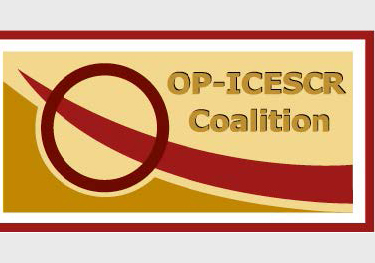
May 3, 2013 | Multimedia items, News, Video clips
The ICJ warmly welcomes the entry into force of the Optional Protocol to the ICESCR that will be effective on Sunday, 5 May, 2013.
As noted in previous statements, the ICJ considers that the entry into force of the new instrument allowing the review of alleged violations of economic, social and cultural rights by a UN Committee will mark an historic boost to the international protection of these rights.
The ICJ and its allies in the International NGO Coalition for the OP-ICESCR look forward to pursuing the dialogue and interaction with the UN Committee on Economic, Social and Cultural Rights and States parties, and aim to contribute at making the new procedures offered an effective tool for victims who could not achieve justice in their domestic justice systems.
Coalition press release in English
Coalition press release in Spanish
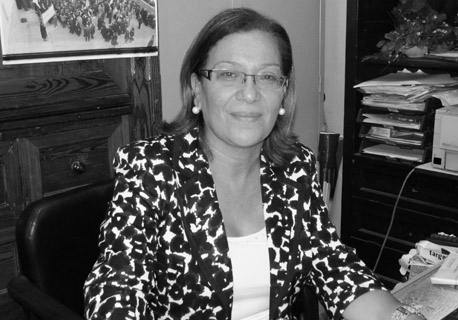
May 3, 2013 | Advocacy, News
Today, the ICJ sent a letter to the Tunisian Minister of Interior and the Minister of Justice requesting them to take immediate action in order to ensure the security and physical integrity of Justice Kalthoum Kennou.
Justice Kalthoum Kennou is a Tunisian judge on the Court of Cassation, President of the Tunisian Association of Magistrates, and ICJ Commissioner.
This call comes as Justice Kennou received a letter containing serious death threats, demanding her withdrawal from the judiciary. Justice Kennou is active in the establishment of an independent judiciary and the protection of human rights.
The ICJ strongly condemns these threats and all acts of intimidation against the judiciary and human rights defenders in Tunisia, and calls on the Tunisian authorities to initiate the necessary investigations and inquiries in order to find, prosecute, and punish the individuals behind these brutal threats.
Tunisia-Lettre Kalthoum Kennou – MoI-advocacy-2013 (full text in pdf)










